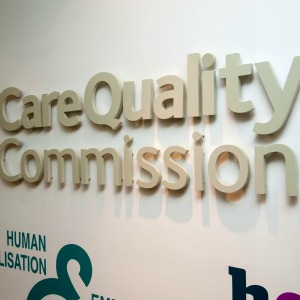Up to 200 GP practices could be closed under the new CQC inspection regime, the chief inspector of general practice has said.
Professor Steve Field said a pilot of the new regime had so far identified 200 practices that are ‘failing’. A ‘handful of surgeries’ would be shut down straight away and ‘scores more’ would be given a year to improve, he added.
CQC inspectors have identified practices that had prescribed the ‘wrong medicines’, had ‘over-prescribed’ antibiotics, were referring suspected cancer cases too late and had ‘staff shortages’ as well as ‘chaotic management’, Professor Field said.
The chief inspector was speaking as a new handbook on practice inspections was launched. It explains how practices will be given their ‘Ofsted-style’ ratings of ‘outstanding’, ‘good’, ‘requires improvement’ or ‘inadequate’.
The ratings will have to be displayed in practices’ waiting rooms and on their websites, with fines of up to £600 for those not doing so.
The handbook explains practices will be given an overall rating based on how they fare in five ‘domains’: how effective they are; how caring; how responsive; how safe; and how well led.
They will also be rated on how well they perform in these domains with regards to six population groups: older people; people with long-term conditions; families, children and young people; working-age people; vulnerable people; and people with mental health conditions.
This makes a total of 42 ratings.
The handbook states that any two scores of ‘inadequate’ in the domains section would ‘normally’ lead to practices being given an overall rating of inadequate, which would put them into special measures.
However, a senior GPC member has raised alarms about the practice inspections that form the bulk of the assessment for practice ratings.
Dr Paul Cundy, chair of the GPC’s IT committee, said in an open letter to Professor Field and CQC senior national GP adviser Professor Nigel Sparrow, that the report of the inspection of his own practice contained 41 factual errors, including getting the name of the practice wrong.
Dr Cundy said the errors included:
- The surgery name was incorrect.
- The report said the practice had no business continuity plan. Dr Cundy told inspectors that it did.
- The report claimed staff had not completed ‘appropriate child protection training’, but inspectors had been told they had.
- The report highlighted failures in the practice’s recruitment process, when the only failing was that a verbal rather than a written reference was taken during the recruitment of one member of staff.
Dr Cundy told Pulse: ‘From what I have seen, Professor Field’s clipboard army is not fit for purpose. How dare CQC judge anyone when they can’t get their own house in order… 41 errors, not counting the dreadful grammar and typos, in a 31-page report is pretty good going.
‘From what I’ve seen it’s the CQC that should be in special measures.’
A CQC spokesperson said: ‘CQC has a comprehensive quality assurance process for reports, and a formal factual accuracy process in which providers are given the opportunity to raise issues they may have with their inspection report at draft stage.
‘This is considered by CQC before a final report is published. Where a provider disagrees with the evidence presented and/or the judgments made, they are therefore able to do so.’
CQC to access patient records without consent
CQC inspectors will be able to access GP records without patient consent during the new-style practice inspections.
Pulse has learned that practices ‘should be prepared to provide discreet’ access to medical records, and that they could be asked to do so at any time during an inspection.
The CQC will not ask for patients’ consent before looking at the records, but has said it will allow GPs to anonymise the records.
As part of the new inspection regime that was officially rolled out last month, CQC inspections teams will have the power to review patient medical records ‘to assess the quality of care provided by the practice’.
Under Health and Social Care Act 2008, the CQC has powers to access patients’ medical records, and Pulse reported in 2012 that CQC inspectors routinely accessed GP records without patient consent during a pilot of 40 practices to test the regulator’s model for inspections.
CQC senior national GP adviser Professor Nigel Sparrow told Pulse: ‘The main purpose of the review of medical records is to assess the quality of care provided by the practice. It is not to assess the individual clinician. In routine inspections, the GP or nurse specialist adviser will look at the medical records.’
He said it would ‘usually’ be clinicians who looked at the records, but added: ‘Where inspection teams have concerns about a practice it may be necessary for any of the inspectors to access medical records.’
GPC chair Dr Chaand Nagpaul said: ‘I believe patients will be extremely concerned to learn this.’

















